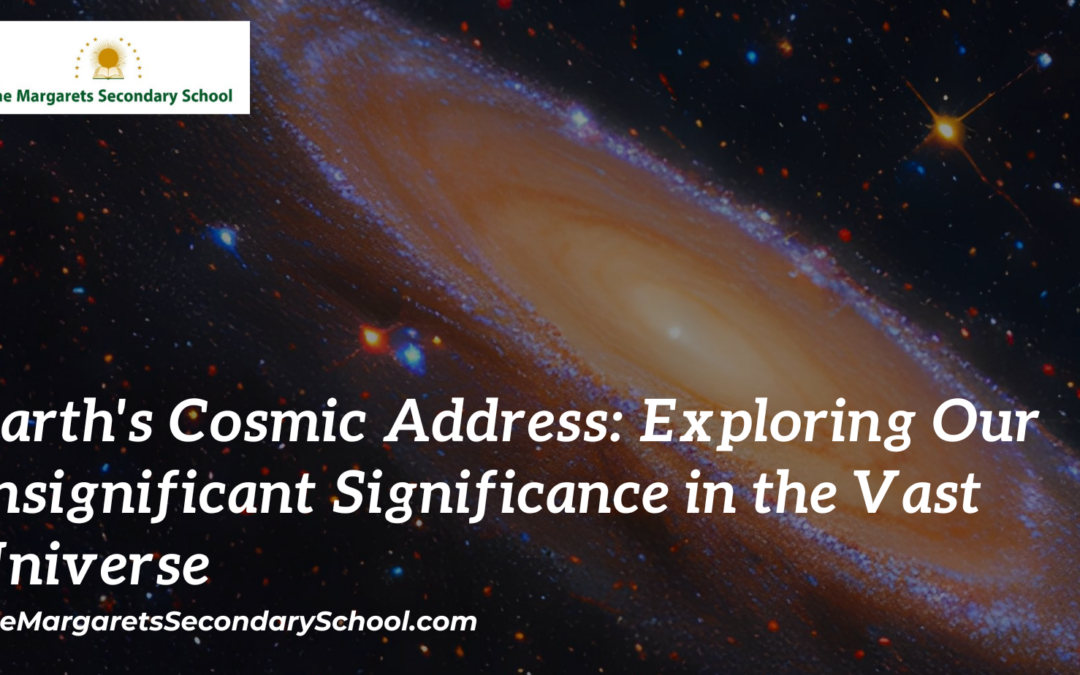Earth’s Place in the Universe
In the grand tapestry of the cosmos, our home planet Earth occupies a minuscule corner, yet its significance is immeasurable to us as the cradle of life and human existence. The concept of Earth’s place in the universe evokes a sense of wonder, humility, and a deep desire to unravel the mysteries that surround us. This article takes a journey through space and time to explore Earth’s cosmic address, its relationship with the universe, and the questions it raises about our existence.
Earth’s Galactic Neighborhood
- The Milky Way Galaxy: Earth resides within the Milky Way, a spiral galaxy containing billions of stars, planets, and other celestial objects. Our solar system is situated about 27,000 light-years from the galactic center, in the Orion Arm.
- Stellar Companions: The night sky is adorned with countless stars, some of which are visible to the naked eye. Prominent among them is our nearest stellar neighbor, Alpha Centauri, located about 4.37 light-years away.
- Galactic Dance: Earth and its solar siblings orbit the center of the Milky Way, taking approximately 225-250 million years to complete one revolution.
The Expanding Universe and Cosmic Web
- The Big Bang: The universe began with a tremendous explosion, the Big Bang, around 13.8 billion years ago. This event set the universe in motion, leading to the formation of galaxies, stars, and planets.
- Cosmic Expansion: The universe is constantly expanding, with galaxies moving away from each other due to the expansion of space itself. This phenomenon was first observed by Edwin Hubble.
- The Cosmic Web: Galaxies are not scattered randomly but rather form a web-like structure, with galaxies clustering along filaments and surrounding vast cosmic voids.
Earth’s Existence: A Remarkable Anomaly
- Habitable Zone: Earth’s position within the “Goldilocks zone” of its star, the Sun, has allowed the existence of liquid water—a crucial ingredient for life.
- The Rare Earth Hypothesis: Some scientists propose that the conditions necessary for intelligent life are so unique that Earth’s emergence as a habitable planet is an extraordinary occurrence in the universe.
Implications for Human Understanding
- Humility and Wonder: Earth’s place in the universe humbles us, reminding us of our insignificance in the face of cosmic immensity. This realization fosters a sense of curiosity and awe.
- Search for Extraterrestrial Life: Studying Earth’s uniqueness in the universe fuels the search for other habitable worlds and potential life beyond our solar system.
- Philosophical Reflections: Earth’s cosmic address raises philosophical questions about our purpose, existence, and whether life might be a rarity or a common occurrence in the universe.
Conclusion
Earth’s position in the universe is a reminder of the cosmic vastness that surrounds us and the rare conditions that have nurtured life on our planet. As we gaze into the night sky, we are not merely observers of the universe but participants in the ongoing human quest for understanding. The exploration of Earth’s cosmic address inspires us to explore, question, and appreciate the intricate beauty of the cosmos that both envelops us and fuels our boundless curiosity.





